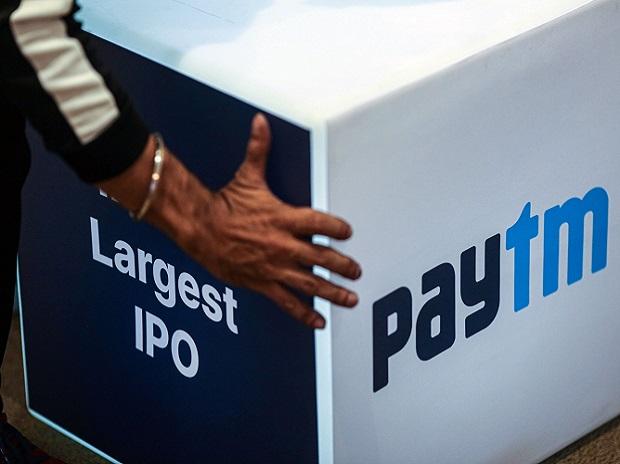Paytm, India’s leading digital payments brand, faces another reckoning, a year after it recorded the grisliest initial public offering in India’s history.
This week, the lock-up period for the company’s stock will expire, freeing investors to sell shares that haven’t yet been allowed onto the market. The biggest shareholders in One97 Communications Ltd., Paytm’s parent company, are Alibaba Group Holding Ltd. and its fintech affiliate Ant Group Co., as well as Japan’s SoftBank Group Corp.
Paytm and founder Vijay Shekhar Sharma pulled off India’s largest-ever IPO last November only to see its shares plummet in one of the worst debuts ever. The company has had to spend heavily to boost revenues since then, piling up losses just as investors have grown increasingly skittish about money-losing startups.
“The free money days for cash-burning companies are well and truly gone,” said Deven Choksey, managing director of wealth manager KRChoksey Holdings. “Even with Paytm’s lock-in expiry, new investors will only come in after seeing free cash flow in the near horizon. Until then, the stock is going to remain volatile.”

The company’s shares fell just over 1% to 630.8 rupees on Tuesday, far below its IPO price of 2,150 rupees a share. Its market value is about $5 billion, more than $10 billion less than its peak.
Alibaba didn’t immediately respond to requests for comment and a spokesman for SoftBank declined to comment. A representative for Paytm confirmed the expiration day Nov. 15.
Stocks often fall after lock-ups expire, as investor selling puts downward pressure on shares. It’s not immediately clear what the sale strategy of large Paytm shareholders will be. Ant and Alibaba own over 30% of shares between them, SoftBank owns nearly 17.5%, while Berkshire Hathaway Inc.’s holding is about 2.5%.
“We recognize that lock-in expiry (86% of Paytm’s outstanding shares) in Nov ‘22 may represent an overhang on the stock,” analysts Manish Adukia, Rahul Jain and Harshita Wadher of Goldman Sachs Group Inc. wrote in a research note in September.
Nevertheless, the analyst recommended buying Paytm shares given the company’s progress in boosting revenue and moving toward profitability. “We expect Paytm to deliver c.50% revenue growth for the next few quarters and continue its transition from an erstwhile payments-only business to one with a strong financial services portfolio,” they wrote.
In a letter earlier this week to shareholders, Sharma, 44, sought to quell market anxiety over the shares’ continued capriciousness.
“One year ago, we made our way to the public markets. We are aware of the expectations that Paytm carries, and I assure you that we are on the right path to profitability and free cash flows,” Sharma said. “Our journey to build a scalable and profitable financial services business has just started.”
Paytm has plenty of company in dealing with market turbulence. Food-delivery company Zomato Ltd. and Nykaa, formally called FSN E-Commerce Ventures, both went public last year and have seen their shares trounced when freed up for market. Nykaa shares dropped as much as 9.4% on Tuesday.
Note:- (Not all news on the site expresses the point of view of the site, but we transmit this news automatically and translate it through programmatic technology on the site and not from a human editor. The content is auto-generated from a syndicated feed.))




payday loan
Please let me know if you’re looking for a article writer for your site.
You have some really good posts and I feel I would be a good
asset. If you ever want to take some of
the load off, I’d absolutely love to write
some material for your blog in exchange for a link back to mine.
Please shoot me an email if interested. Thank you!